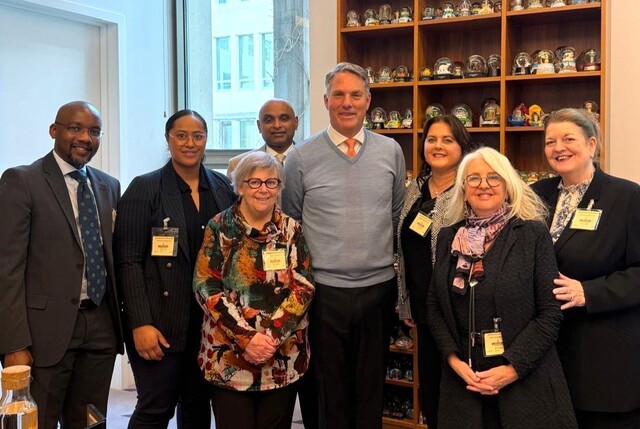Local multicultural organisation Cultura represented our region as part of the Regional Multicultural Alliance Victoria’s (RMA Vic) delegation to Canberra last week.
Hosted by Deputy Prime Minister and member for Corio Richard Marles at Parliament House, the meeting saw RMA Vic meet with MPs and senior advisors from all parties on July 30.
One of the key matters discussed at the meeting was the funding models for multicultural organisations, particularly the need for solutions to regional-specific challenges such as access to services, employment and infrastructure.
RMA Vic spokesperson and Cultura chief executive Joy Leggo said the purpose of the visit was to advocate as a collective to find better solutions, ensuring such organisations could continue to provide their “vital services”.
“There is a pressing need for a sustainable, place-based funding model to ensure regional communities are not left behind with what has always been an inequitable funding allocation for multicultural organisations,” Ms Leggo said.
“The current distribution of multicultural funds disproportionately favours entities with broad mandates, such as local governments, public health agencies, and community health providers; while these organisations have important roles, their wide scope dilutes their focus on regional multicultural needs.
“In contrast, specialised multicultural organisations, which are deeply connected to their communities and offer culturally tailored services, receive little to no funding.
“This imbalance weakens the effectiveness of multicultural programs and undermines the communities these funds are meant to assist.”
RMA Vic is a partnership between seven regional organisations across the state focused on equity and cultural inclusion.
Ms Leggo said the delegation proposed an innovative funding model with needs-based funding.
The proposed model would include “targeted funding mechanisms” that Ms Leggo said would support the state government’s Anti-Racism Strategy.
She said RMA Vic also proposed to Parliament the need to establish a basic principal funding mechanism of $2.5 million each year for regional Victoria to sustain the operational integrity of RMA Vic members, covering essential expenses such as rent, staff and infrastructure.
“Our ask is to work with Federal Members to allocate the RMA Alliance a Federal Regional Assistance Grant,” she said.
“We believe that a co-designed, long-term funding model will support not just social cohesion but economic participation and improved service delivery across the state and potentially across Australia in rural and regional towns and cities.”









